Breaking Bad: Why Did Gus Kill Victor, The Real Reason Nobody Ever Told You
Breaking Bad fans have always wondered: “Why did Gus kill Victor in season 4 instead of dealing with Walt and Jesse?”. The answer lies in a pivotal scene in the second season.
Victor, Gus's enforcer, made sure the drug business ran smoothly. However, in a shocking turn of events, Gus brutally murdered Victor with a box cutter at the start of season 4.
This act established Gus's dominance and showcased his unwavering ruthlessness to Walt and Jesse. It sent a clear message: disobedience would have severe consequences. In today’s article, we will dive into the real reasons and any related details.
Why Victor Must Die In Breaking Bad
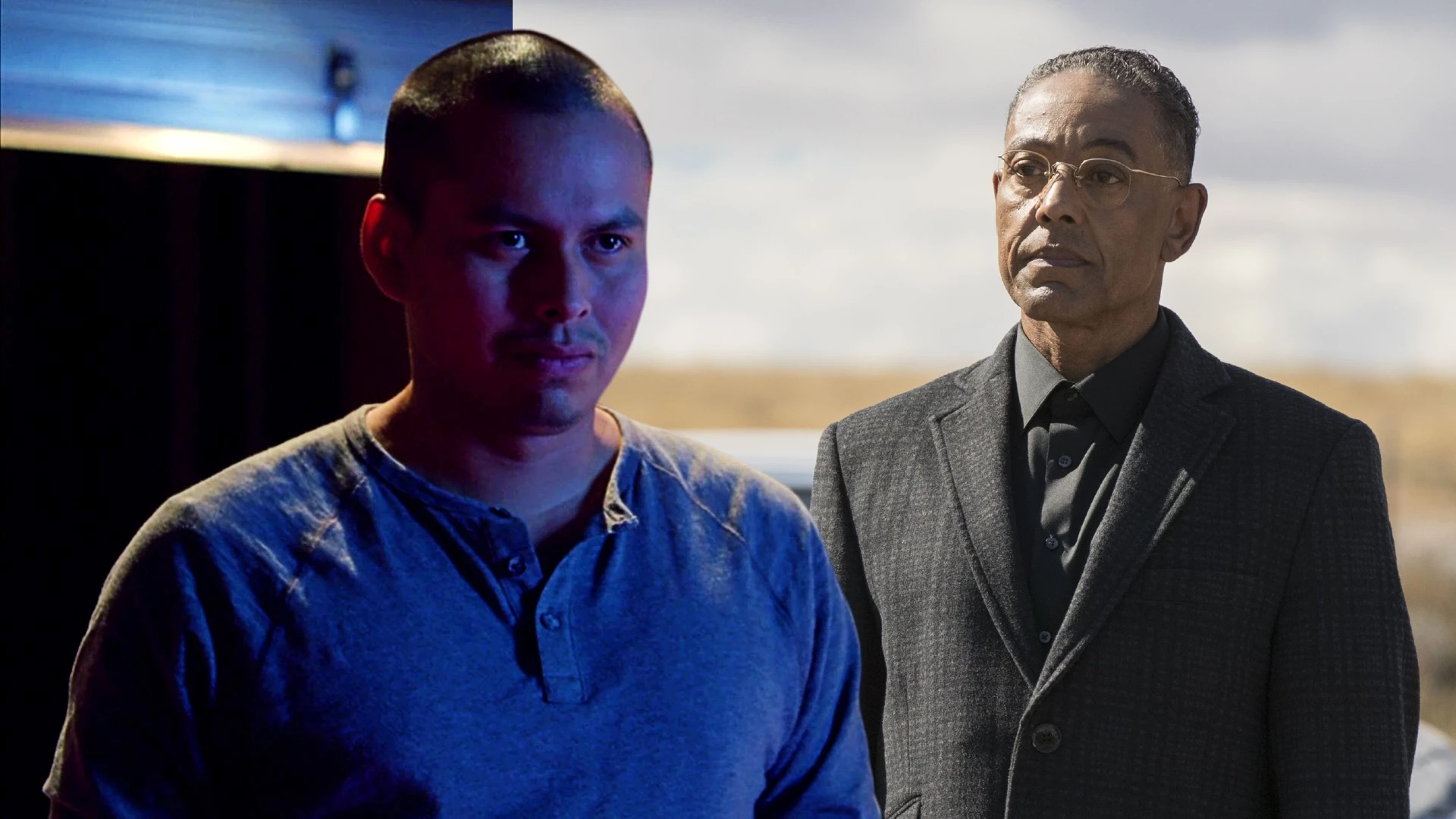 Source: Breaking Bad
Source: Breaking Bad
The decision behind Gus killing Victor becomes even more chilling when you consider their history, but in short, he serves as a sacrifice for Gus to prove his point. As revealed in the prequel series, Better Call Saul, Victor has been working for Gus long before the events of Breaking Bad.
By the time of Season 3, Victor was overseeing the meth superlab where Walter White and Jesse were employed as part of Gus's operation. When Gale Boetticher, another chemist, is introduced into the mix, Walt becomes concerned that he will be eliminated and replaced.
In response, Walt devised a plan to eliminate Gale, securing his position as the sole meth cook. However, Jesse ends up carrying out the fatal act, shooting and killing Gale in his apartment before Victor could intervene.
This set the stage for the shocking events of Breaking Bad Season 4, particularly in the episode "Box Cutter."
In "Box Cutter," Walt and Jesse find themselves held hostage by Gus, awaiting his arrival at the lab. In a chilling turn of events, instead of targeting Walt and Jesse, Gus directs his brutal anger toward Victor.
With a cold and calculated demeanor, Gus uses a box cutter to slash Victor's throat, all while instructing his employees to resume their work. Victor, in this case, is a sacrifice to prove Gus’ insane determination.
Despite Jesse being the one who pulls the trigger, Victor's reckless involvement in the situation seals his fate. This brutal act underscores Gus Fring's ruthlessness and the high-stakes nature of the drug trade in the world of Breaking Bad.
Why Did Gus Kill Victor, The Real Reason
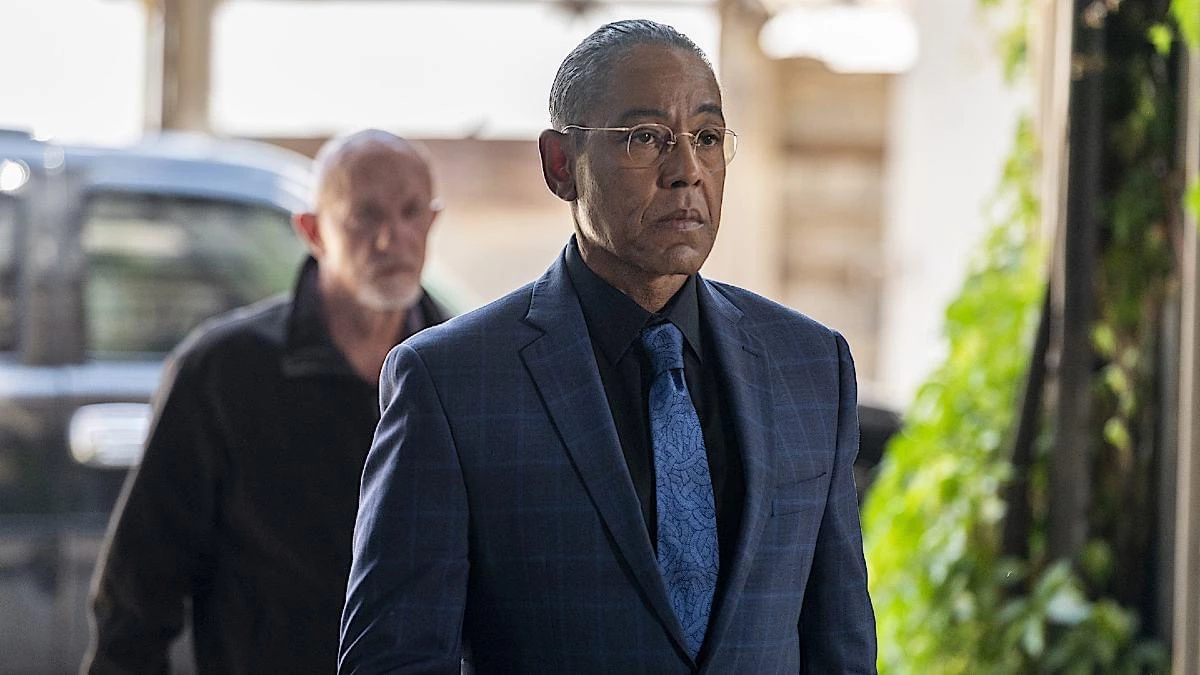 Source: Breaking Bad
Source: Breaking Bad
In the intense world of Breaking Bad, where murder and shocking events are commonplace, Gus Fring's decision to kill Victor in the season 4 episode "Box Cutter" stands out as particularly chilling. This brutal act is a turning point for Gus and solidifies his reputation as one of the most ruthless characters in the series.
Gus wants to send a clear message to Walt and Jesse: If they posed a threat to his operation, he won’t hesitate to eliminate them just like he does with Victor.
Even though Jesse pulls the trigger on Gale, Victor's reckless involvement in the situation harms himself. Later in the season, Gus discovers a composite sketch of Victor in a police station, providing the justification he needed to eliminate his longtime ally.
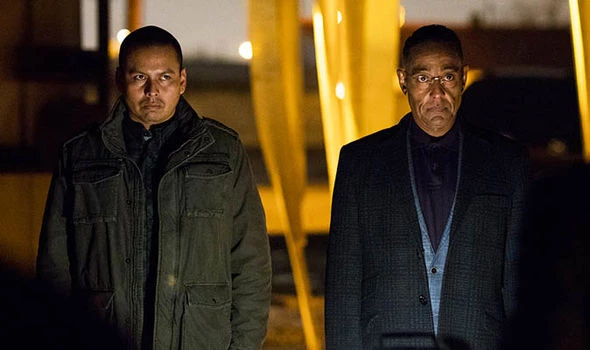 Source: Breaking Bad
Source: Breaking Bad
Gus has his reasons for sparing Walt and Jesse. He recognizes that their cooperation was essential to his drug empire, and he knew they produce the highest-quality crystal.
While Walt speculates that Gus holds a grudge toward Victor for his ambition, Gus's decision to kill him is calculated. It serves as a message to ensure Walt and Jesse understand the consequences of crossing him.
Furthermore, the idea that Gus eliminates Victor to prevent any police inquiries into the murder of Gale, which could potentially lead to exposure of his drug operation, aligns with the meticulous and cautious nature of Gus's character.
The timing of Victor's death, as a result, serves as a message to Walt and Jesse about the consequences of crossing Gus reinforces the notion that Gus wanted to maintain strict control and dominance within his operation.
Breaking Bad’s Box Cutter Episode Was Unexpected
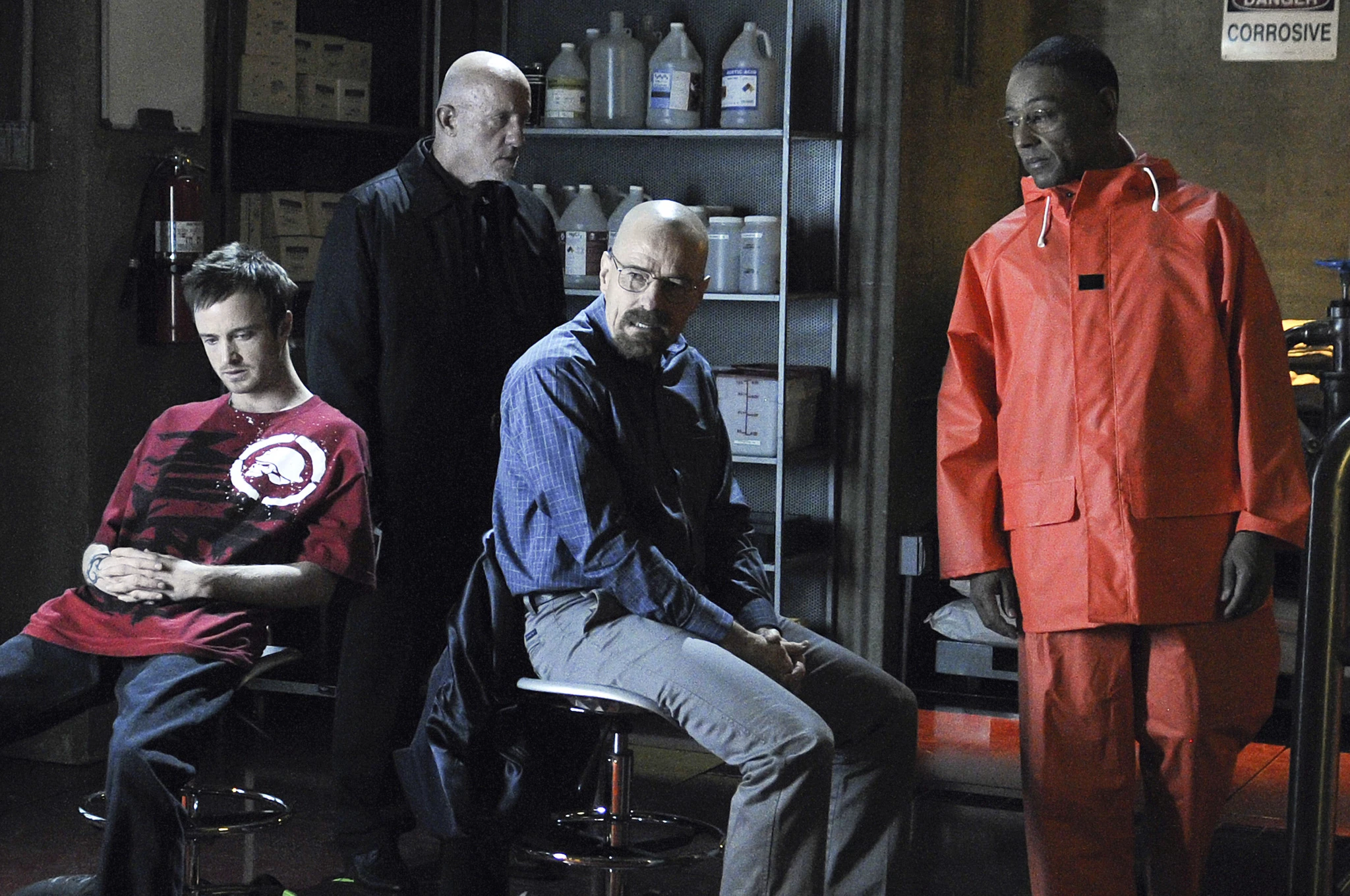 Source: Breaking Bad
Source: Breaking Bad
Vince Gilligan, the creator of Breaking Bad, revealed that the shocking box cutter episode, where Gus kills Victor, was not part of the original plan and was added during the production of season 4.
Vince Gilligan, the creator of Breaking Bad, shared some insights about the infamous box cutter scene in the series, and a particular cinematic choice. Despite the scene's quiet atmosphere, Walt actually speaks a lot during it as he pleads for his life. On the other hand, Gus remains silent until after the act.
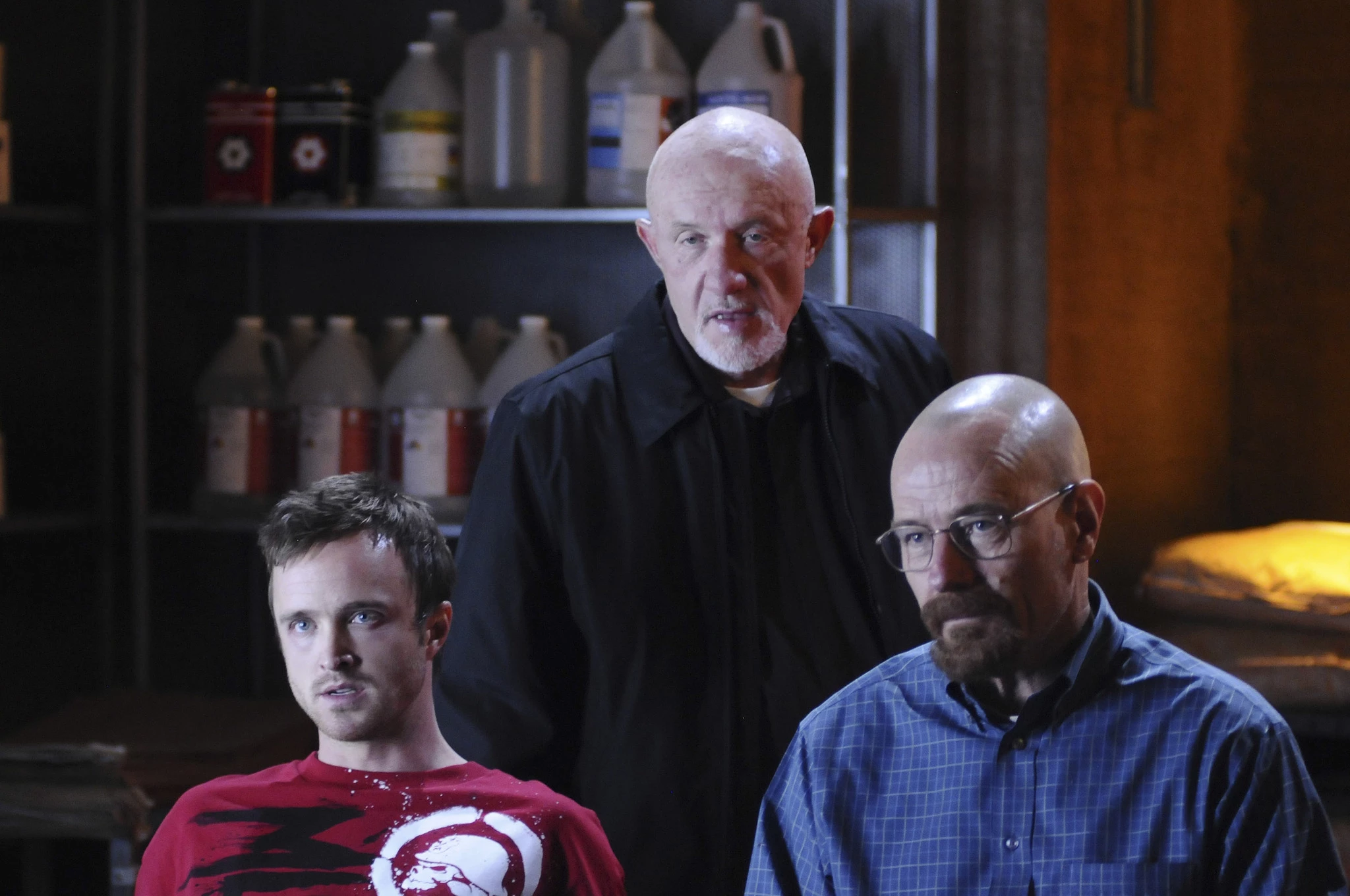 Source: Breaking Bad
Source: Breaking Bad
The decision to have Gus stay silent before taking action was intentional. It aligns with Gus's character as someone who doesn't explain his actions or reveal his intentions beforehand. This choice adds to Gus's menacing aura.
In such a scene, there are two options: either the character screams and rants, which can release tension, or the character remains enigmatic and unreadable, which was the chosen path for Gus. His action of calmly putting on a raincoat speaks volumes and creates a more eerie and dramatic atmosphere.
Gus Also Shows His Consistency In Better Call Saul
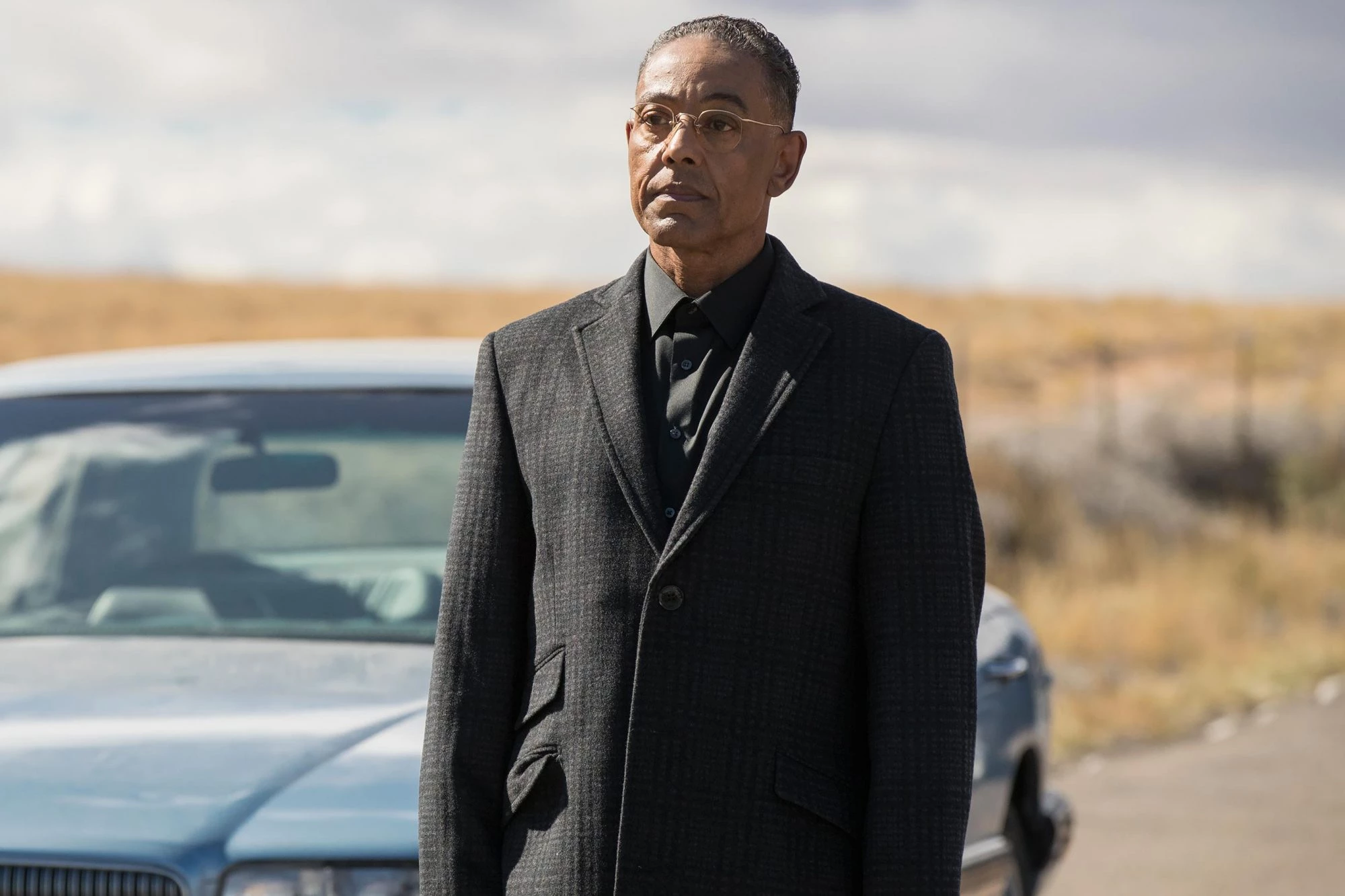 Source: Google Images
Source: Google Images
In Better Call Saul Season 4, Episode 2, titled "Breathe," Gus Fring's character is, once again, portrayed as one of the most notorious villains in the Breaking Bad universe.
His calculated and ruthless nature is vividly demonstrated through the cold-blooded murder of Arturo Colon. In this episode, Nacho and Arturo deviate from their original plan to acquire more drugs from Gus' facility, and Gus, aware of Nacho's involvement in Hector's stroke, takes matters into his own hands.
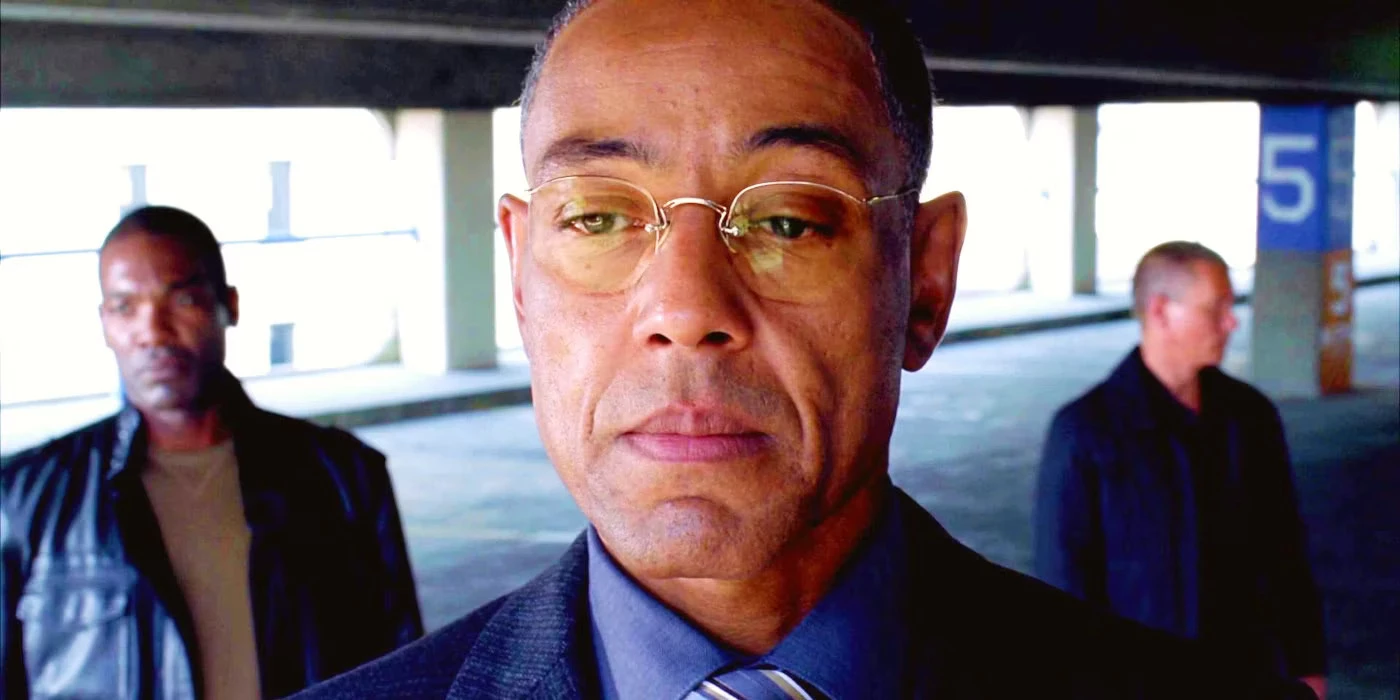 Source: Better Call Saul
Source: Better Call Saul
Gus suffocates Arturo using a plastic bag, and Arturo pleads for mercy before his death. Gus later explains his reasons for killing Arturo, Much like Gus's motive for killing Victor in Breaking Bad, his decision to kill Arturo in Better Call Saul was driven by a desire to maintain complete control over Nacho, recognizing that Nacho could be more valuable to him alive and under his influence.
Throughout his tenure as a crime boss, Gus has been involved in various deaths, including ordering the execution of Juan Bolsa, a rival in the criminal underworld eliminated by federal officers under Gus's command.
However, Arturo Colon's murder stands out as a chilling reminder of Gus's cold-blooded nature and his unwavering willingness to go to extreme lengths to conceal his criminal activities.
What Is Lalo’s Role In Gus’ Murders?
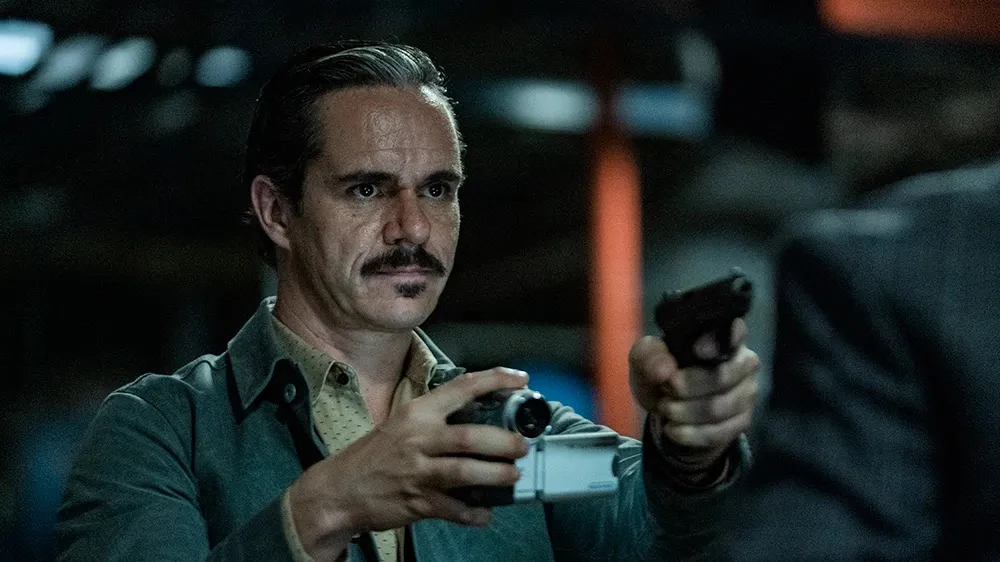 Source: Better Call Saul
Source: Better Call Saul
Gus's murder of Lalo in Better Call Saul adds depth and context to two of his other notable killings in the Breaking Bad universe. Why? Because it sheds light on his motivation to the brutal slaying of Victor.
Lalo's character in Better Call Saul had an intriguing dynamic with Gus Fring, often keeping him grounded with his chaotic yet methodical thinking. However, Lalo's own hubris led to his downfall.
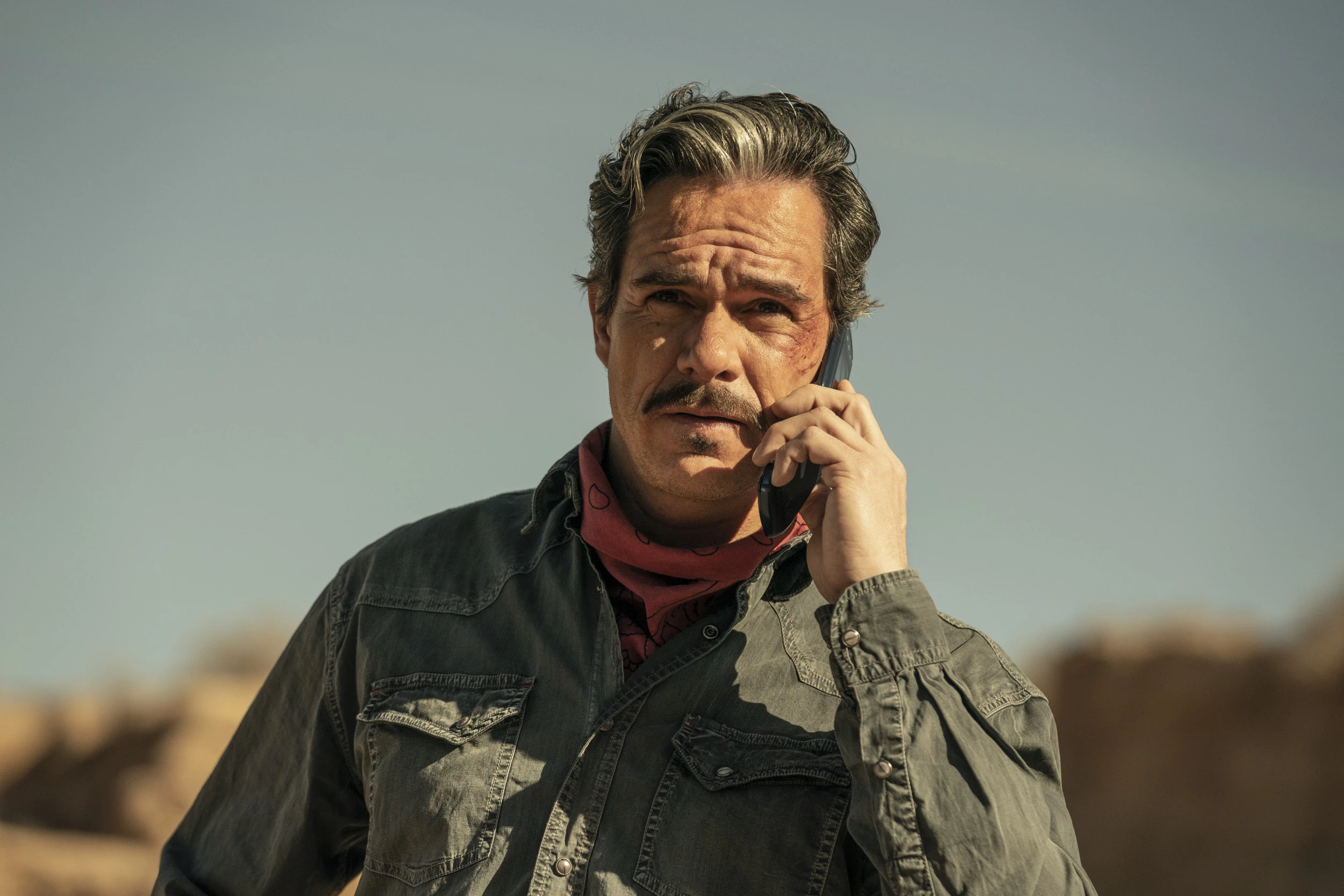 Source: Better Call Saul
Source: Better Call Saul
After dealing with and ultimately disposing of Lalo, Gus became wiser through the experience. This wisdom played a role in his decision to kill Victor in Breaking Bad. Just as he killed Lalo, Gus eliminated Victor because it was the quickest and most effective way to secure his own interests and protect his drug organization.
Understanding Gus's murder of Lalo and his connection to the cartel Eladio leads further emphasizes his ruthless nature and his determination to achieve his goals in the larger Breaking Bad universe.
Killing Victor Is Gus’ Most Cold-Blooded Moment
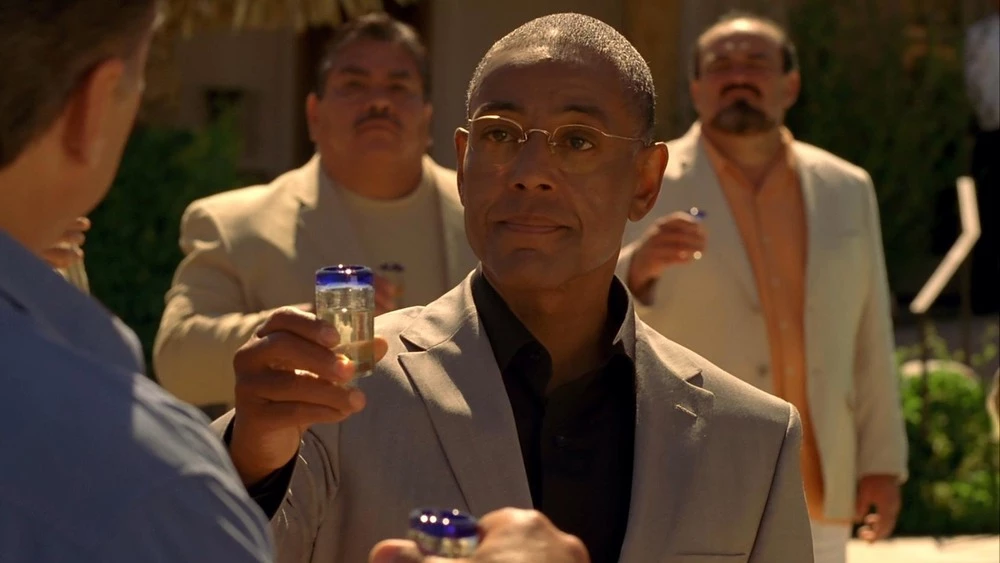 Source: Better Call Saul
Source: Better Call Saul
In the Season Four premiere of Breaking Bad, viewers witness a stark transformation in the character of Gus Fring. Known for his squeaky-clean image, Gus enters the meth lab in a fury, his calm demeanor contrasting with Walt's desperate pleas for their lives.
In a chilling and methodical manner, Gus dons protective gear and then proceeds to slit Victor's throat, holding him as he bleeds out. Even the unflinching Mike looks taken aback by this brutal act. Giancarlo Esposito's performance masterfully blends menace and composure.
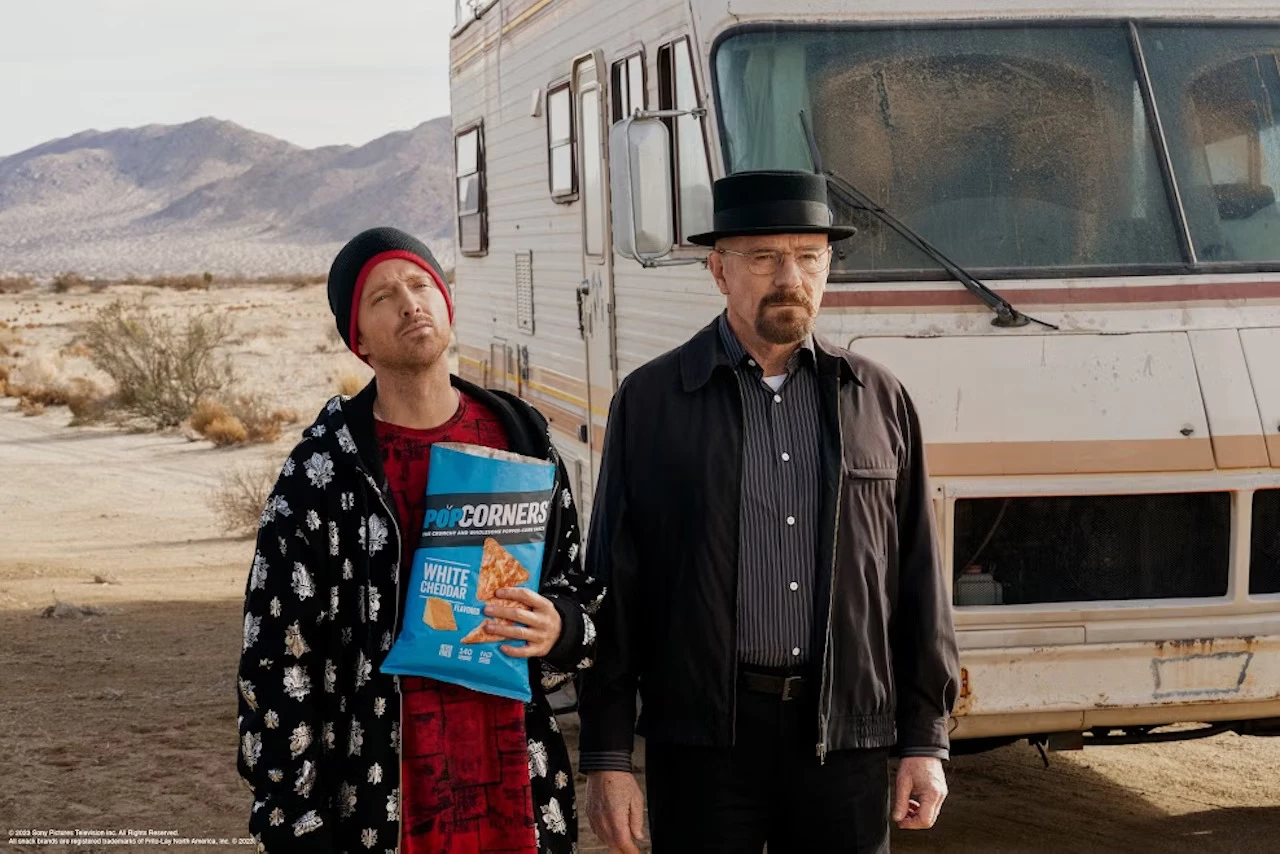 Source: Breaking Bad
Source: Breaking Bad
While Walt struggles to comprehend the gruesome scene, Jesse grasps its significance. He later explains to Walt that they are now all on the same page—a page that reads, "If I can't kill you, you'll sure as hell wish you were dead."
This moment marks a turning point in the series, showcasing Gus's ruthless determination and setting the tone for the events that follow.
Summary
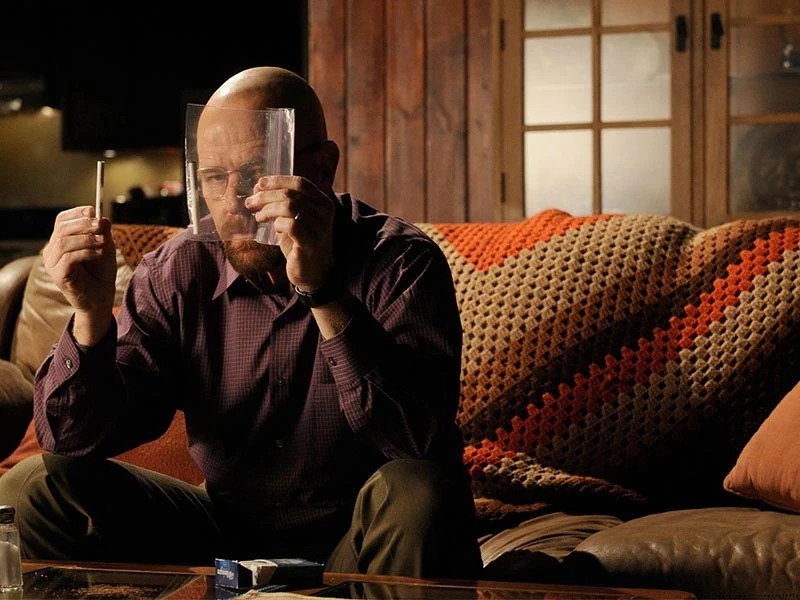 Source: Breaking Bad
Source: Breaking Bad
So now you know for sure the answer to “Why did Gus kill Victor'' instead of Jesse. The cruel decision acts as a turning point for Gus to prove his point and marks his official “Breaking Bad” moment.
It is also one of the most prominent moments that helps define Gus’ character development in the following events. Until next time.